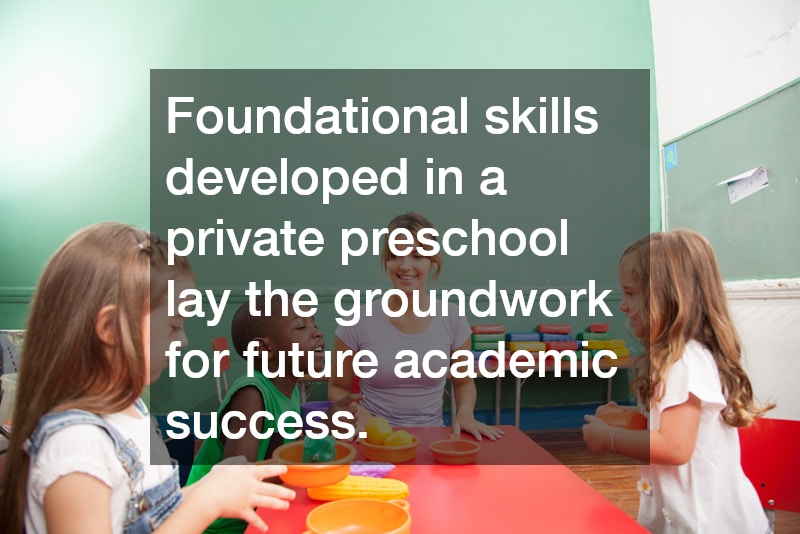In today’s fast-paced world, the importance of early educational exposure is more prominent than ever. As parents and educators strive to provide the best for children, the significance of starting academic learning in preschool is gaining recognition. By engaging in early educational experiences, children gain a head start that can impact their academic and social lives for years to come. This article delves into the hidden benefits of early academic exposure in preschool, a crucial stage where children’s brains are highly receptive to new knowledge and experiences.
Building Foundational Skills
Foundational skills developed in a private preschool lay the groundwork for future academic success. At the core of early education is the development of essential skills like language, numeracy, and problem-solving. When children are exposed to structured academic environments at an early age, they begin to build on their intrinsic curiosity towards the world. As they explore new concepts, they also learn how to interact with peers and educators, setting the stage for behavioral and social development. Such exposure fosters not only cognitive growth but also boosts self-confidence and enthusiasm for learning.
Bridging Educational Gaps
Moreover, early academic exposure in a private preschool helps bridge educational gaps between children from different backgrounds. Private schools enroll about 10% of all American children, according to the Census, illustrating the disparities in educational opportunities. Public education systems strive to provide quality programs at no cost to families, making early learning accessible to all students, regardless of socioeconomic status. This helps prevent delays in learning that can occur when students enter kindergarten without prior academic exposure. Providing equal opportunities for early education can thus play a pivotal role in leveling the playing field for students from diverse cultural and financial backgrounds.
Acquiring Vital Social Skills
The benefits of early academic exposure extend beyond the classroom. As little ones engage in structured learning, they acquire vital social skills such as communication, empathy, and teamwork. These skills are nurtured in a socially stimulating environment that encourages cooperation and mutual respect. Participating in group activities and collaborative tasks fosters a sense of belonging and teaches children how to form relationships and work together toward shared goals, essential skills for navigating future academic endeavors and everyday interactions.
The advantages of early academic exposure in preschool extend far beyond cognitive development. By initiating structured learning experiences at an early age, children not only gain a solid academic foundation but also develop into well-rounded individuals equipped with vital social and emotional skills.

















